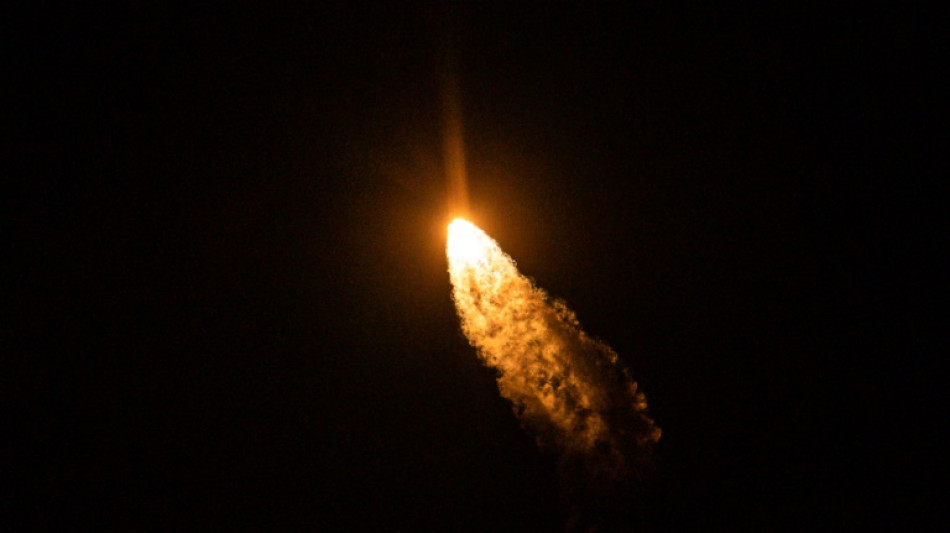
-
 Snowstorm blankets US northeast as New York sees travel ban
Snowstorm blankets US northeast as New York sees travel ban
-
Healthcare crisis looms over Greenland's isolated villages

-
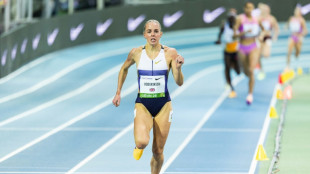 Hodgkinson says breaking 800m record would put her among athletics' greatest
Hodgkinson says breaking 800m record would put her among athletics' greatest
-
Two Russian security personnel were on board France-seized tanker: sources

-
 EU puts US trade deal on ice after Supreme Court ruling
EU puts US trade deal on ice after Supreme Court ruling
-
Hetmyer blasts 85 as West Indies pile up 254-6 against Zimbabwe
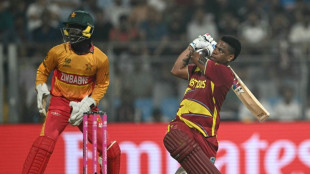
-
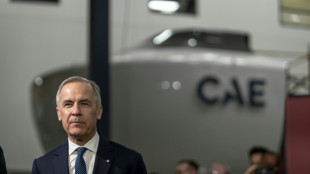 Canada PM heads to Asia seeking new trade partners as US ties fray
Canada PM heads to Asia seeking new trade partners as US ties fray
-
South Africa accepts Trump's new US ambassador
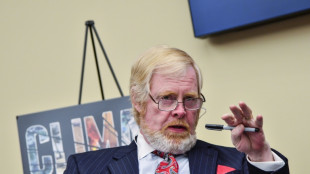
-
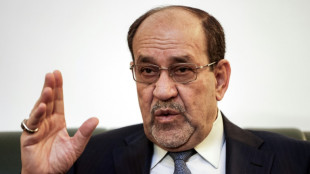 Iraq's Maliki defends PM candidacy, seeks to reassure US
Iraq's Maliki defends PM candidacy, seeks to reassure US
-
UEFA suspend Benfica's Prestianni after alleged racist abuse

-
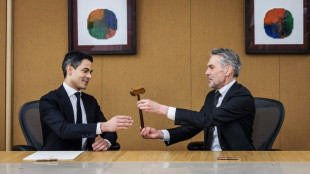 Jetten sworn in as youngest-ever Dutch PM
Jetten sworn in as youngest-ever Dutch PM
-
Italy's Enel to invest 20bn euros in renewables by 2028
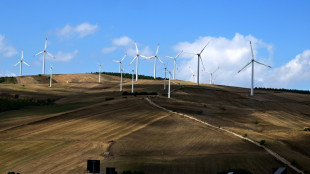
-
 BBC apologises for 'involuntary' Tourette's racial slur during BAFTA awards
BBC apologises for 'involuntary' Tourette's racial slur during BAFTA awards
-
Kristen Bell returns to host glitzy Actor Awards in Hollywood
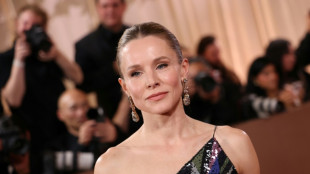
-
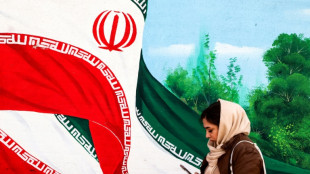 Iran says would respond 'ferociously' to any US attack
Iran says would respond 'ferociously' to any US attack
-
Venezuelan foreign minister demands 'immediate release' of Maduro
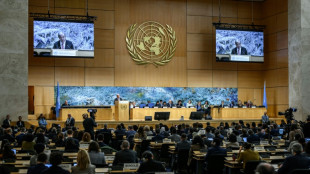
-
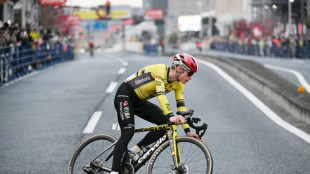 Dane Vingegaard to start season at Paris-Nice in March
Dane Vingegaard to start season at Paris-Nice in March
-
Australia PM backs removing UK's Andrew from line of succession
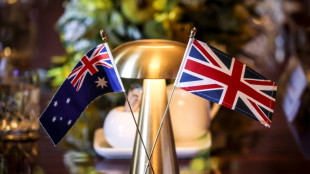
-
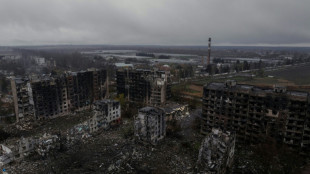 Where do Ukraine and Russia stand after four years of war?
Where do Ukraine and Russia stand after four years of war?
-
Police investigating racist abuse of Premier League quartet

-
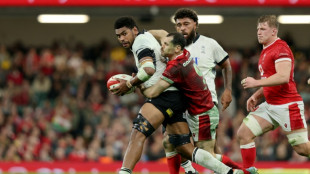 Fiji to start Nations Championship at 'home' to Wales in Cardiff
Fiji to start Nations Championship at 'home' to Wales in Cardiff
-
EU lawmakers to put US trade deal on hold after Supreme Court ruling

-
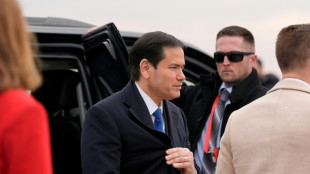 Rubio to attend Caribbean summit as US presses Venezuela, Cuba
Rubio to attend Caribbean summit as US presses Venezuela, Cuba
-
'Ugly' England aim to spin their way to T20 World Cup semi-finals

-
 Nigeria paid Boko Haram ransom for kidnapped pupils: intel sources
Nigeria paid Boko Haram ransom for kidnapped pupils: intel sources
-
Tudor says Tottenham can still beat the drop despite Arsenal loss
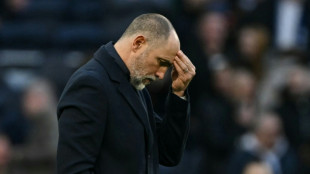
-
 Violence sweeps Mexico after most-wanted drug cartel leader killed
Violence sweeps Mexico after most-wanted drug cartel leader killed
-
France giant Meafou capable of being 'world's best' lock

-
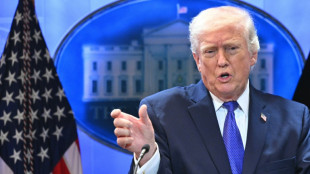 Stocks diverge, dollar down over Trump tariffs uncertainty
Stocks diverge, dollar down over Trump tariffs uncertainty
-
World champions South Africa announce eight home Tests for 2026/27

-
 Liverpool boss Slot encouraged by Mac Allister's return to form
Liverpool boss Slot encouraged by Mac Allister's return to form
-
India replaces British architect statue with independence hero
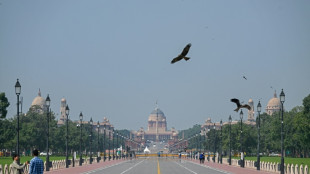
-
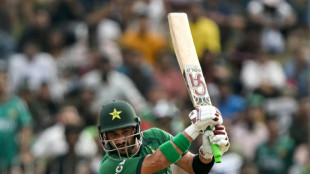 Pakistan warn England's flaky batting to expect a trial by spin
Pakistan warn England's flaky batting to expect a trial by spin
-
Philippines' Duterte authorised murders, ICC told as hearings open
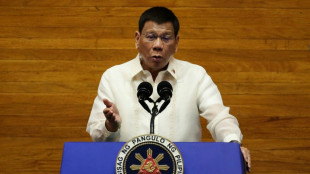
-
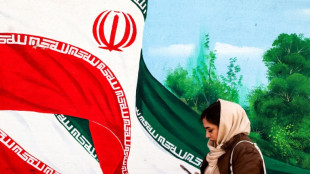 Iran says would respond 'ferociously' to any US attack, even limited strikes
Iran says would respond 'ferociously' to any US attack, even limited strikes
-
New Dutch government sworn in under centrist Jetten
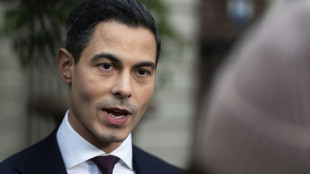
-
 What the future holds for the CJNG cartel after leader killed
What the future holds for the CJNG cartel after leader killed
-
ICC kicks off pre-trial hearing over Philippines' Duterte
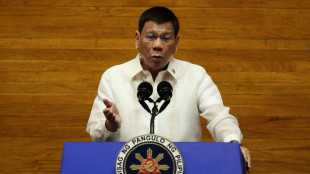
-
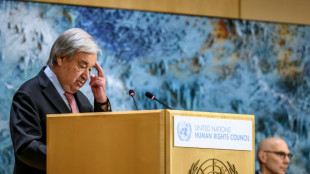 UN chief decries global rise of 'rule of force'
UN chief decries global rise of 'rule of force'
-
Nemesio Oseguera, the brutal Mexican drug lord known as 'El Mencho'
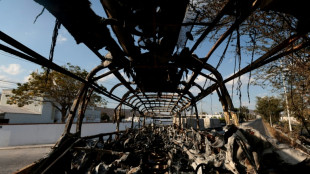
-
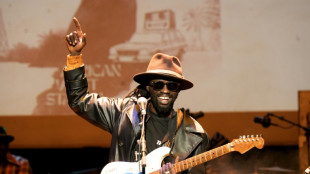 Senegal's Sahad, radiant champion of 'musical pan-Africanism'
Senegal's Sahad, radiant champion of 'musical pan-Africanism'
-
New York orders citywide travel ban as major storm hits US

-
 'Considered a traitor': Life of an anti-war Ukrainian in Russia
'Considered a traitor': Life of an anti-war Ukrainian in Russia
-
South Korea and Brazil sign deals on K-beauty, trade
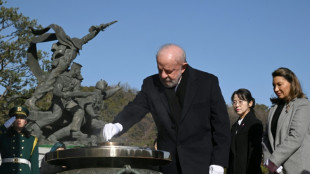
-
 Zimbabwe farmers seek US help over long-promised payouts
Zimbabwe farmers seek US help over long-promised payouts
-
Hong Kong appeals court upholds jailing of 12 democracy campaigners

-
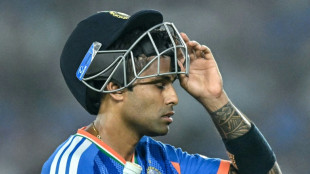 India battle for World Cup survival after 'messing up on grand scale'
India battle for World Cup survival after 'messing up on grand scale'
-
'I will go': Bengalis in Pakistan hope for family reunions

-
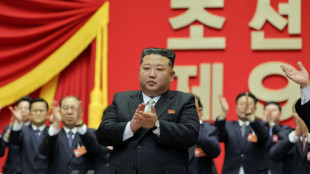 North Korea touts nuclear advances as Kim re-chosen to lead ruling party
North Korea touts nuclear advances as Kim re-chosen to lead ruling party
-
South Korea protests 'Victory' banner hung from Russian embassy
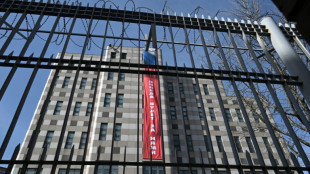

In space race, Europe faces choice: passenger or pilot
As the race to send people to the Moon and beyond heats up, Europe faces calls to make a choice: Keep paying for seats on spacecraft or finally fly its own manned vehicle.
Imagine if Christopher Columbus did not have a ship to sail to the Americas, the head of the European Space Agency said recently, lamenting that the continent lacked a vessel to "explore the next frontier".
"We will be on the Moon and we believe we will be living there. We will use the Moon as an economic zone. This is a new frontier," ESA director general Josef Aschbacher told the 14th European Space Congress last week in Brussels.
"The big question is, do we want, as Europeans, to be part of it, or do we want to be watching others going to the Moon?"
NASA is aiming to return to the Moon with its Artemis programme by 2025, while China plans to send one of its taikonauts there by 2030.
India plans an uncrewed test flight for its Gaganyaan programme this year to prepare for a manned mission.
Europe, meanwhile, has no manned vessels to speak of, having relied on US and Russian spacecraft to take more than 30 astronauts into orbit over the years.
Private companies have now become major players in the sector, with Elon Musk's SpaceX taking astronauts to the International Space Station.
French astronaut Thomas Pesquet, who travelled to and from the ISS aboard SpaceX's Dragon capsule, has called for more ambition in Europe in terms of crewed flights.
European space firm ArianeGroup, owned by Airbus and French group Safran, says it is ready to develop a reusable two-stage launcher capable of carrying astronauts.
Philippe Baptiste, president of France's CNES space agency, says such a launcher would pave the way for Moon and Mars missions, but he said Europe's space ambitions remain a political question.
That question takes on particular significance in the runup to a European space summit in the French city of Toulouse on February 16.
An ESA ministerial meeting will be held in November to lay out priorities and budgets for the coming years.
- Mere passengers -
The ESA's 2021 space exploration budget stood at 735 million euros ($822 million) -- just seven percent of NASA's.
Meanwhile, private-sector funding in space-related companies exceeded $10 billion last year -- an all-time high -- and investors are directing more funds to Moon projects and further from Earth's orbit, according to the McKinsey consultancy.
Lacking its own vehicle, the ESA will seek to secure a spot for a European on a NASA Moon mission by proposing to develop a lunar supply lander, Didier Schmitt, the agency' head of exploration strategy, told Bsmart online media.
Europe is already guaranteed three stays on NASA's Gateway, a space station that will orbit the Moon with several European-built modules.
But even NASA has had to rely on SpaceX for flights to the ISS as the US space agency works on a new vessel to replace the mothballed space shuttle programme.
German astronaut Alexander Gerst warns that using private hardware could see his colleagues denied full access to data.
"I see that from my colleagues who were training now for example with SpaceX with the Dragon, it's a totally different game. They're not partners on an equal level anymore, they are actually more like passengers," he said.
"They're not allowed to have access to all the information anymore, so it is a step back."
- 'Economic rationale' -
Europe tried to have its own manned spacecraft before. The Hermes programme, however, was abandoned in 1992 after delays and failure to meet cost and performance goals.
Jean-Jacques Tortora, director of the Vienna-based European Space Policy Institute, said arguments in favour of a European space programme lack an "economic rationale."
"Essentially, it is about political objectives, if Europe has the desire to be a space power or not," Tortora said.
In last week's Brussels conference none of the ministerial level representatives from France, Germany or Italy -- which together put up some 60 percent of the ESA budget -- mentioned crewed European flight as a priority.
That did not deter ESA chief Aschbacher, who said he is not "asking for a decision today or in three weeks."
G.AbuHamad--SF-PST



